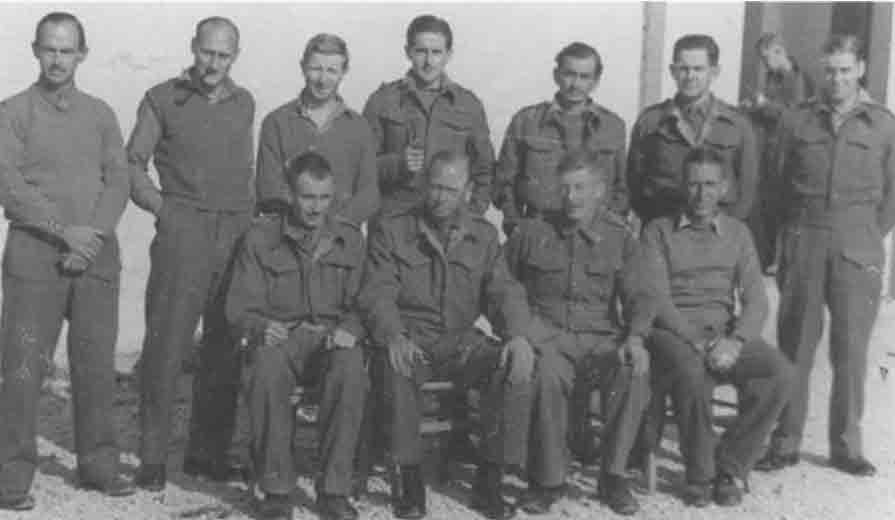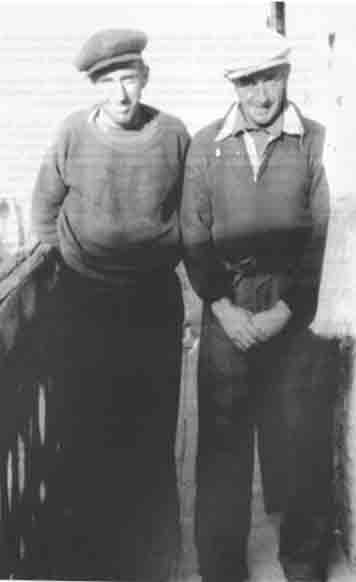OWCA
Jack Kroger’s war

Henry Jack Kroger commenced teaching commerce studies at Wesley in 1934. When he retired 37 years later in 1970, the Chronicle rightly referred to him as ‘Mr Wesley’. In addition to his teaching duties, he had many roles at the school including House Master (Adamson and Corrigan) and was the Sports Master for many years. Current students know his name, as both the Front Turf at the St Kilda Road Campus and the Swimming Pool at the Glen Waverley Campus are named in his honour.
Jack’s status with the schoolboys of the post-1945 era was enhanced by his daring escape from a train carrying prisoners of war (PoW) to Germany in September 1943. Jack’s war service was quite remarkable as he served in the UK, Middle East, was a PoW in Italy, and then was an internee in Switzerland for a year, before returning to Australia in late 1944 and then serving in the AIF’s 1945 actions in Borneo.
Aged 33, he enlisted in the AIF in October 1939. His administration and leadership skills were quickly recognised as by Christmas he was a Lieutenant in the Army Supply Corps. On 5 May 1940, he departed with troops bound for the Middle East. However, his convoy was diverted to the UK mid-voyage in anticipation of a German invasion of the UK and he arrived in Scotland four weeks later.
In August 1940, he was appointed Catering Officer of the AIF UK forces. The December 1940 Chronicle observed: ‘Mr Kroger has been promoted to the rank of Captain and has been appointed to more responsible duties. His recent spare-time occupations include captaining an AIF team against Winchester College XI—who gave our men a sound licking— and discovering the "Bird in Hand" Inn.’
When the threat of invasion of the UK passed, the Australian troops there formed the nucleus of the 9th Division and were shipped to the Middle East. On 1 February 1941, Jack was appointed Catering Adviser 9th Division and was shipped to the Julis Camp, Palestine, just northeast of Gaza. He had the onerous responsibility of ensuring food supplies for nearly 20,000 service men and women – an army marches on its stomach! The 9th Division was sent to Cyrenaica (eastern Libya) to replace the 6th Division troops. By the end of March 1941, he was based at HQ at Tecnis. In unfortunate timing, the Germans under General Rommel commenced a surprise attack on Allied forces in Cyrenaica and started pushing them back.
With the city of Benghazi falling on 3 April, the Allied forces were ordered to withdraw. Ultimately for the Australians they would fall back to Tobruk. With some fighting units providing rearguard actions and engineers ordered to demolish infrastructure, there was a dash for all units to head east in front of the advancing Afrika Corps. This dash became known as ‘The Benghazi Handicap’.
On 3rd and 4th April 1941 Jack co-led a convoy of some of the HQ personnel to establish a new HQ east of Derna. But on the morning of 6th April 1941, he was ordered to go back to Tecnis. Late in the afternoon, he was sent to a British battalion to obtain transport vehicles for the AIF’s 26th Brigade. At 1830 he reported to the remaining senior officer at Tecnis that he was unable to get any vehicles and he was ordered to ‘overtake and move with the main HQ convoy’ which had left at 1800. We assume that he caught up with the convoy, but at 0200 on 7th April, while still in transit near Derna, he, and probably others, were captured when they were cut off by an advanced German Panzer patrol.
So, from May 1941 to September 1943, he spent time in various internment camps in Northern Italy.
His chance to escape came as PoWs were being moved to Germany following the Armistice between the Italians and Allies on 8 September 1943. The German Army almost immediately occupied Jack’s camp at Bologna and moved the Allied PoWs to the train station at nearby Modena on 11 September. On 12 September 1,200 PoWs entrained in cattle carriages bound for Moosburg, Germany, via the Brenner Pass. About 100 men were able to escape by cutting holes in the carriages. Accompanied by Lt Barney Grogan, Jack took his chance in escaping from the moving train. It took several weeks in the North Italian Alps before they crossed into neutral Switzerland on 13 October 1943. Flt-Lt Fred Eggleston (OW1928) also escaped from the same train carriage.
While we don’t have much documented about the adventures of Jack and Barney in the Italian Northern mountains, the 1965 Wesley College history says Jack’s ‘escape succeeded because when a patrol came around, he backed into a door that ought to have been locked and was unlocked.’ This may refer to an event following his escape from the train as they avoided German patrols.
Over 400 other Australians also escaped into Switzerland following the Italian Armistice. As the senior AIF officer, Jack was appointed to be responsible for all Australian ‘evades’ in Switzerland. Located in the city of Wil, a small group of officers provided oversight of the activities of the men as they were encouraged to work and broaden their education. Not surprisingly, Jack was in charge of education and trade training schools. He also had to deal with several instances of men enjoying their newly found freedom a little too much!
In October 1944, with Allied forces progressing in Italy and occupying the south of France, the Australians in Switzerland were successfully repatriated, and Jack arrived home to Melbourne in November 1944.
However, his war has not yet over. After a short period of leave, he was promoted to Major and appointed Requisitioning Officer (Supply and Transport) HQ 1 Aust Corps (7 & 9 Div). He joined this force in mid-January in Queensland and on 8 April 1945 left Townsville for its forward base on the small island of Morotai as they undertook the final Australian Army WWII campaigns in Borneo (Tarakan, Labuan & Balikpapan).
On 4 August 1945, he ceased his role and returned to Melbourne. It appears he had a health issue and he spent time at Heidelberg Hospital in late August before his Army appointment was terminated in the first week of September. The following year saw ‘Major Kroger’ back at Wesley dealing with young lads who wanted to know all about how he escaped from the Germans. The 1946 Chronicles record that he spoke twice to student gatherings of his war experiences.
Above: Captain Henry Jack Kroger (left) with Lieutenant Bryan Grogan
In February 1946, his distinguished service as a PoW in Europe was acknowledged with a Mention in Despatches. In very typical style, the May 1946 Chronicle congratulated him on this accomplishment ‘and hope that perhaps his under-age teams will also be mentioned in our winning team despatches at Monday assemblies.’
Help us write our history. The College is keen to hear from those or their families who have served post-WWII or who are still serving so that their contributions can be recorded.
Please contact Leigh Treyvaud (OW1963) at treyvaud-lc@bigpond.com
